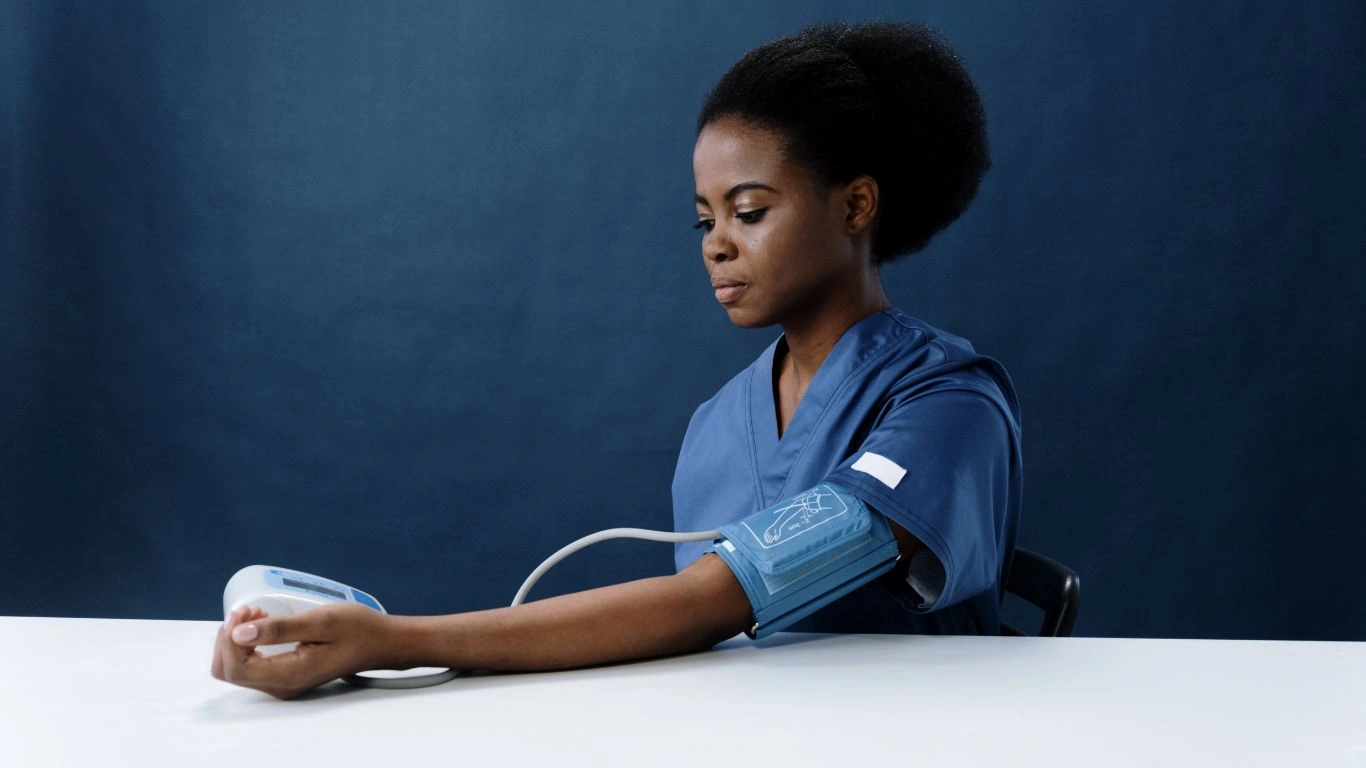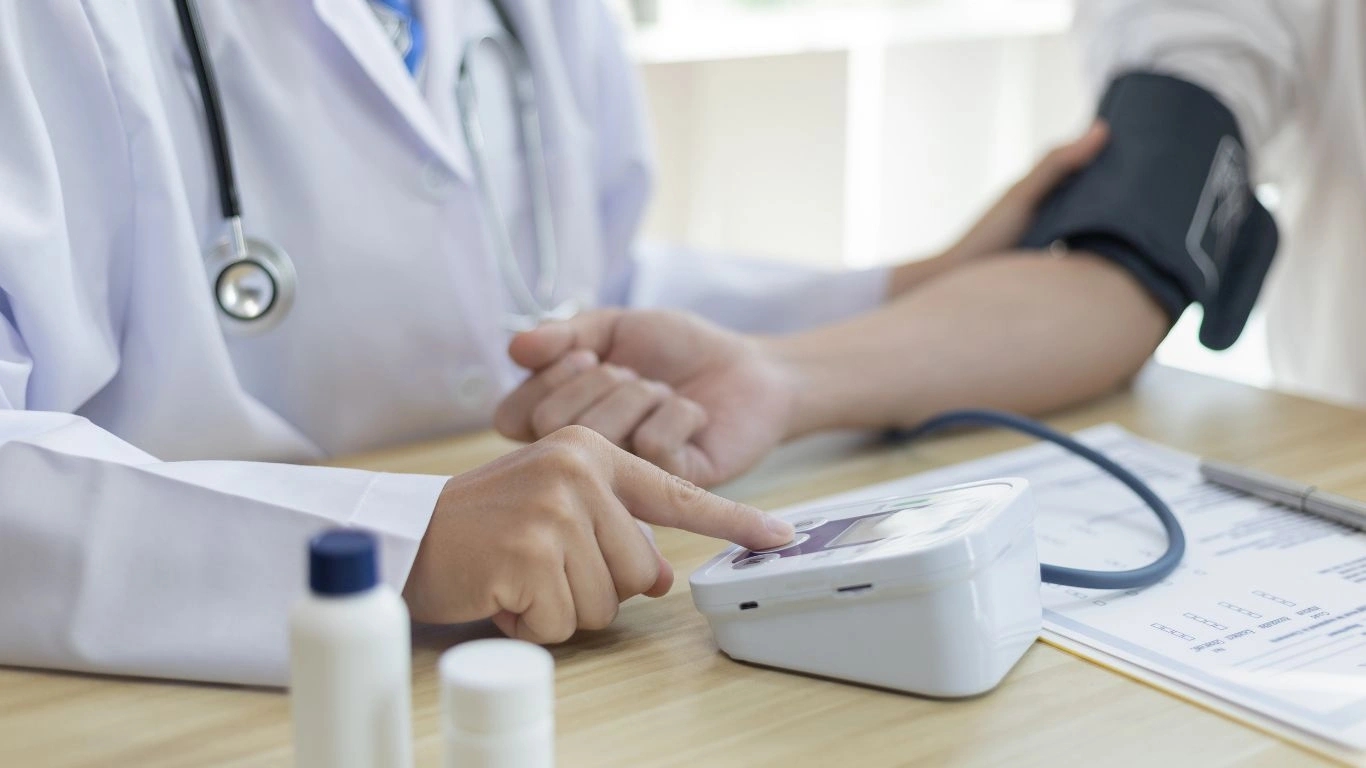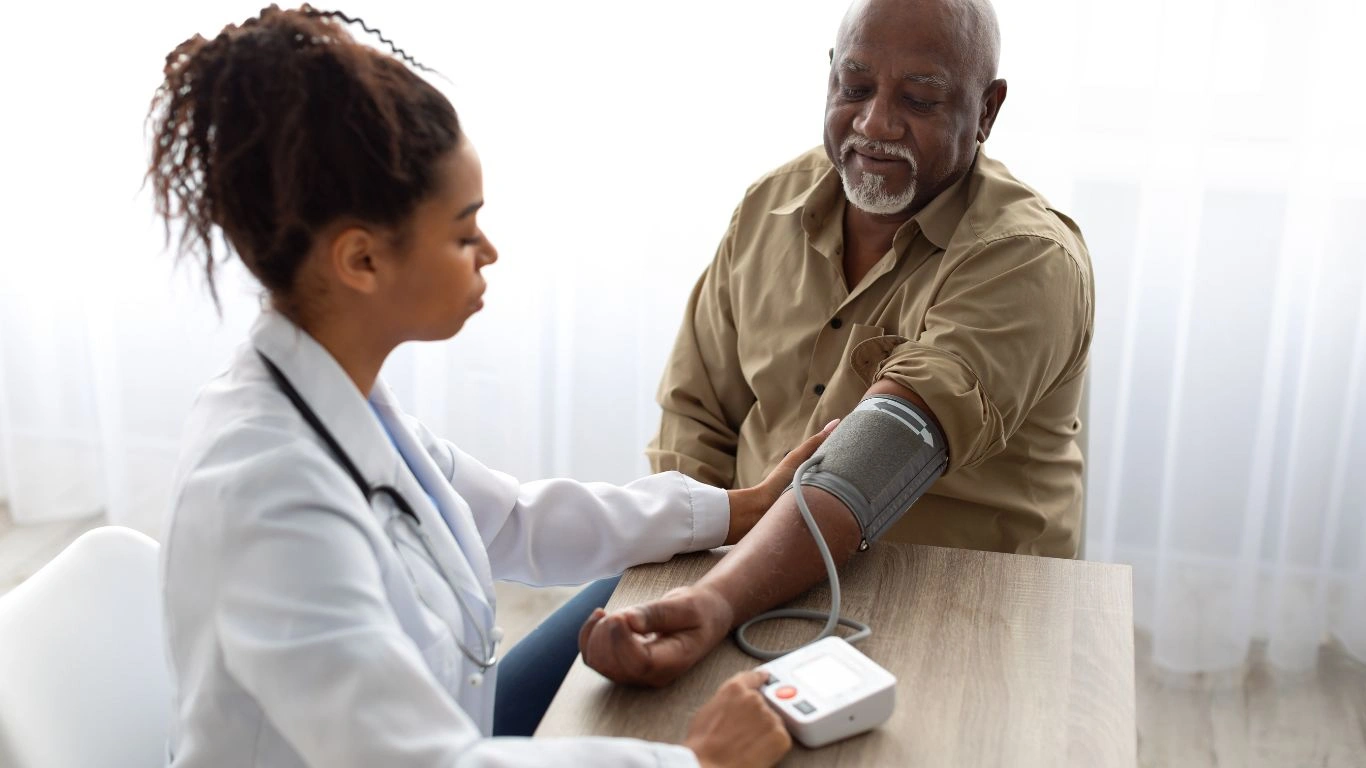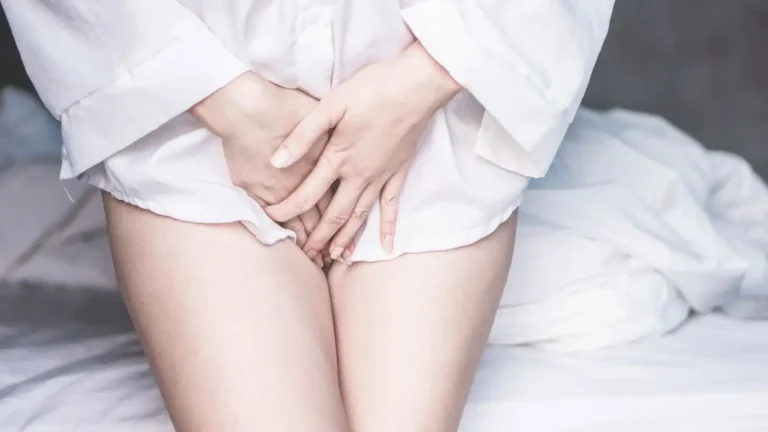How to Prevent Blood Pressure Spikes at Night: Simple Solutions for Better Health
As an internal medicine physician with a specialty in hypertension management, I’ve encountered many patients who struggle with the challenge of preventing blood pressure spikes at night. It’s not uncommon for people to feel great during the day, only to wake up in the middle of the night with a pounding headache or feeling dizzy. Blood pressure naturally fluctuates throughout the day, but nighttime spikes can be particularly problematic. So, how can we prevent blood pressure spikes at night and ensure better, more restful sleep? Let’s explore this critical issue together, and I’ll share insights and tips based on my experience.
Understanding Blood Pressure Spikes at Night

Blood pressure naturally decreases during sleep, a phenomenon known as “nocturnal dipping.” This drop in pressure is essential for heart health and overall well-being. However, some individuals experience nighttime blood pressure spikes that can disrupt this natural rhythm. These spikes can occur due to various factors, such as poor sleep quality, underlying medical conditions, or even medications.
In my clinical experience, nighttime blood pressure spikes can be concerning because they often go unnoticed. Most people aren’t actively monitoring their blood pressure while they sleep, so they may only notice symptoms like fatigue or morning headaches. This can be dangerous since elevated nighttime blood pressure can increase the risk of heart disease, stroke, and kidney problems.
Why Do Blood Pressure Spikes Happen at Night?
There are several reasons why blood pressure spikes occur during the night. Let’s break them down:
- Sleep Apnea: This condition, where breathing repeatedly stops and starts during sleep, can cause abrupt spikes in blood pressure. When your breathing pauses, your body experiences stress, leading to higher blood pressure levels.
- Poor Sleep Quality: If you’re not getting enough deep, restorative sleep, your body may fail to regulate blood pressure properly. Inadequate rest can elevate stress hormones, which in turn raise blood pressure.
- Medication Timing: Certain medications, especially blood pressure medications, can be less effective if taken at the wrong time of day. Taking some medications in the evening or right before bed may contribute to higher nighttime blood pressure.
- Underlying Health Conditions: Conditions such as diabetes, kidney disease, and chronic stress can all contribute to nighttime blood pressure increases. If these conditions are not well-managed, they can make it harder to keep blood pressure stable.
How to Prevent Blood Pressure Spikes at Night

So, how can we prevent blood pressure spikes at night and promote a healthier sleep environment? As a physician, I’ve worked with many patients on strategies that are both effective and manageable. Here are a few tips that you can implement:
1. Establish a Regular Sleep Schedule
One of the most effective ways to prevent blood pressure spikes at night is to establish a regular sleep schedule. Your body thrives on routine, so try to go to bed and wake up at the same time each day, even on weekends. This helps regulate your internal clock and improves the quality of your sleep. Regular, consistent sleep patterns allow your body to better manage blood pressure levels, reducing the likelihood of nighttime spikes.
When you follow a routine, your body learns when it’s time to rest and recover, which can significantly lower stress levels. In my practice, I’ve found that patients who stick to a consistent sleep schedule experience fewer fluctuations in blood pressure, both during the night and throughout the day.
2. Address Sleep Apnea and Snoring
If you’ve been diagnosed with sleep apnea or suspect that you might have it, it’s crucial to seek treatment. Sleep apnea is a serious condition that can lead to blood pressure spikes at night, as your body struggles to get enough oxygen during sleep. It’s often accompanied by loud snoring and choking sensations. If left untreated, sleep apnea can contribute to heart disease and hypertension.
There are various treatments available for sleep apnea, including CPAP machines (Continuous Positive Airway Pressure) or dental devices that help keep the airway open. In some cases, lifestyle changes like losing weight or sleeping on your side can alleviate symptoms. The key is to address the issue early to prevent long-term damage.
3. Monitor Your Diet and Avoid Evening Salty Foods
The foods you eat can have a significant impact on your blood pressure levels. In my experience, many patients are surprised by how much sodium can affect their nighttime blood pressure. Foods that are high in salt can lead to fluid retention, which can increase your blood pressure. To prevent spikes at night, try to avoid eating salty foods in the evening, especially processed or fast food.
Instead, opt for a balanced diet that is rich in fruits, vegetables, lean proteins, and whole grains. Potassium-rich foods like bananas, spinach, and sweet potatoes can help counteract the effects of sodium and lower blood pressure. Making healthier food choices at dinner time can have a significant impact on how your body handles blood pressure throughout the night.
4. Manage Stress During the Day
Stress is a major contributor to elevated blood pressure, both during the day and at night. If you’re feeling anxious or overwhelmed before bedtime, your blood pressure may rise as a result. It’s important to implement stress-reducing practices into your daily routine, such as:
- Regular exercise: A moderate amount of physical activity during the day can help regulate your blood pressure and reduce stress.
- Deep breathing exercises: Taking time to practice mindfulness or deep breathing techniques can lower cortisol levels and prevent blood pressure spikes.
- Avoiding stimulants: Caffeine and nicotine can increase blood pressure, so it’s best to avoid these stimulants, especially in the late afternoon and evening.
By addressing stress during the day, you can improve your chances of maintaining stable blood pressure throughout the night. Reducing daily stress makes it easier for your body to relax and reset overnight.
Get the Right Help and Guidance

If you’ve been struggling with nighttime blood pressure spikes, it’s always a good idea to seek guidance from a healthcare provider. Working with a doctor who understands your specific health needs can help you develop a tailored approach to managing hypertension. Whether it’s adjusting your medication, exploring lifestyle changes, or testing for conditions like sleep apnea, personalized care is key to preventing those troublesome nighttime blood pressure spikes.
In the next section, we’ll dive deeper into medication management and how certain treatments can help stabilize your blood pressure overnight. But for now, remember that small lifestyle changes can make a big difference in how your body handles blood pressure at night. Start with the basics, and don’t hesitate to reach out for professional advice.
Medication Management for Nighttime Blood Pressure Control

In my practice, medication plays a crucial role in managing blood pressure, especially for patients dealing with nighttime spikes. When lifestyle changes alone aren’t enough, a proper medication regimen can help maintain healthy blood pressure levels throughout the day and night. However, the timing and type of medication are just as important as the medications themselves. Let’s dive into how managing your medications can help prevent nighttime blood pressure spikes.
1. Understanding Antihypertensive Medications
There are several types of medications used to manage high blood pressure, and some are more effective when taken at night. Common blood pressure medications include:
- Diuretics: Often referred to as “water pills,” diuretics help the body get rid of excess sodium and fluid, which can lower blood pressure. However, these should be taken earlier in the day to avoid frequent nighttime trips to the bathroom.
- ACE Inhibitors: These medications help relax blood vessels by blocking a hormone that constricts them. Some patients benefit from taking these medications before bedtime to help control blood pressure spikes overnight.
- Calcium Channel Blockers: These medications work by relaxing the muscles of your blood vessels and slowing your heart rate, which can be helpful in managing blood pressure at night. Taking them in the evening may be especially effective.
- Beta Blockers: Beta blockers lower blood pressure by blocking stress hormones like adrenaline. For some patients, taking beta blockers before bed can prevent nighttime blood pressure spikes.
It’s essential to work with your healthcare provider to determine the right medication schedule for you. In some cases, taking your medication in the evening can help control your blood pressure throughout the night, while others may benefit from morning doses. Personalized treatment is key to ensuring you stay healthy and avoid unnecessary risks.
2. The Role of 24-Hour Blood Pressure Medications
For patients who experience nighttime blood pressure spikes, 24-hour medications might be the ideal option. These medications are designed to provide continuous, all-day blood pressure control, including during sleep. By maintaining consistent blood pressure levels, these medications can prevent the dramatic fluctuations that often occur at night.
In my experience, medications like long-acting calcium channel blockers or angiotensin receptor blockers (ARBs) have been particularly helpful for patients who struggle with nighttime spikes. These medications offer the benefit of once-daily dosing and a smooth, consistent effect throughout the entire 24-hour cycle.
3. Medication Timing: Why It Matters
One of the most important aspects of blood pressure management is knowing when to take your medications. For some patients, taking blood pressure medication in the evening may be more effective for controlling nighttime blood pressure. As a general rule, I always encourage patients to speak with their healthcare provider about the best timing for their medications, based on their individual needs.
Take once-daily medications like certain ACE inhibitors, which work best when taken in the evening. The idea is that these medications will help regulate blood pressure throughout the night when it naturally dips. This can be especially useful for patients who are prone to nighttime spikes. However, not all blood pressure medications work this way, and timing can vary greatly depending on the specific medication and individual response.
Implementing Lifestyle Changes for Long-Term Success

In my experience, medication is only one piece of the puzzle when it comes to managing blood pressure. Lifestyle changes are just as important and, when combined with the right medication, can significantly improve long-term blood pressure control. Here are some lifestyle tips that I often recommend to my patients:
1. Incorporate Regular Physical Activity
Exercise is one of the most effective ways to manage blood pressure over the long term. Physical activity helps strengthen the heart, improve blood vessel function, and reduce stress levels—all factors that can contribute to lower blood pressure. For patients with nighttime spikes, I recommend aiming for at least 30 minutes of moderate exercise most days of the week.
In my practice, I’ve seen the positive impact that consistent physical activity can have on blood pressure management. Exercise doesn’t need to be intense to be effective, so activities like walking, swimming, or yoga can all be beneficial. The key is to find something you enjoy so that you’re more likely to stick with it.
2. Prioritize Sleep Hygiene
It’s well known that sleep plays a critical role in blood pressure regulation. Poor sleep or inadequate rest can lead to an increase in blood pressure, particularly during the night. As we discussed earlier, a regular sleep schedule and avoiding stimulants like caffeine or nicotine before bed are crucial. But improving sleep hygiene goes beyond just having a set bedtime.
Make sure your sleep environment is conducive to rest. Keep your bedroom dark, quiet, and cool. Consider using blackout curtains, white noise machines, or earplugs to eliminate disturbances. Avoid using electronic devices before bed, as the blue light can interfere with melatonin production and affect the quality of your sleep. These small adjustments can make a big difference in helping to control nighttime blood pressure spikes.
3. Limit Alcohol Consumption
While a glass of wine might help you unwind after a long day, excessive alcohol intake can contribute to increased blood pressure, especially at night. Chronic alcohol use can interfere with your body’s ability to regulate blood pressure effectively. As a rule, I recommend limiting alcohol consumption to no more than one drink per day for women and two drinks per day for men.
Cutting back on alcohol not only helps with blood pressure control but also improves sleep quality, which is essential for managing nighttime spikes. If you find it difficult to reduce alcohol consumption, consider seeking support from a healthcare professional or a counselor to help manage cravings.
Take Charge of Your Health

When it comes to preventing blood pressure spikes at night, knowledge is power. It’s important to be proactive in managing your health, whether that means adjusting your medication, incorporating healthy lifestyle changes, or working with your healthcare provider to find the right combination of treatments. In my experience, patients who take an active role in their care are more likely to experience better outcomes.
Remember, the road to managing blood pressure is a journey, and every step you take toward making healthier choices can help lower your risk of nighttime blood pressure spikes. Stay informed, stay consistent, and never hesitate to seek support from your healthcare team. Together, we can work toward better blood pressure control and improved overall health.
Tracking Your Progress and Getting Regular Check-Ups

As we’ve discussed, managing blood pressure spikes, particularly at night, is a comprehensive approach that includes medications, lifestyle changes, and regular monitoring. One of the most important factors in ensuring your efforts are successful is tracking your progress. Regularly checking your blood pressure at home and having follow-up visits with your healthcare provider can help you assess how well your blood pressure is being managed and whether adjustments need to be made.
In my practice, I often advise patients to keep a record of their daily blood pressure readings, especially if they are dealing with nighttime spikes. With modern technology, many blood pressure cuffs can sync directly with your smartphone or computer, making it easier than ever to track your numbers. Consistent monitoring not only provides valuable data for your healthcare team but also gives you a better understanding of your health and whether any changes need to be made to your treatment plan.
1. Home Blood Pressure Monitoring
While blood pressure monitoring in a clinical setting provides useful information, nothing beats the accuracy and reliability of checking your blood pressure at home. Home monitoring allows you to track your blood pressure throughout the day and night, which gives you a more complete picture of how well your treatment plan is working.
I encourage my patients to measure their blood pressure at the same time each day, ideally in the morning before they get out of bed and in the evening before dinner. These readings, when done consistently, help identify patterns in blood pressure fluctuations, including any nighttime spikes. It also allows you to see if certain lifestyle changes or medications are making a difference.
Most importantly, home monitoring empowers you to make informed decisions about your health, enabling you to have more productive conversations with your doctor. It’s one of the easiest ways to stay on top of your blood pressure and make sure you’re taking the right steps to prevent nighttime spikes.
2. Regular Check-Ups with Your Healthcare Provider
While self-monitoring is crucial, it’s also important to stay connected with your healthcare provider. Regular check-ups allow your doctor to assess your overall health, review your blood pressure readings, and make necessary adjustments to your treatment plan. Your provider may recommend certain tests, like a 24-hour blood pressure monitoring (called ambulatory blood pressure monitoring), to evaluate whether you experience nighttime blood pressure spikes that aren’t detectable through regular office visits.
Through these check-ups, your provider will also assess for any potential underlying conditions, such as sleep apnea or kidney disease, that could contribute to your blood pressure spikes. As we’ve discussed before, conditions like sleep apnea require specialized treatment to help manage blood pressure effectively.
In my experience, having regular visits with a healthcare provider who specializes in hypertension management is essential to long-term success. If you’re noticing symptoms like persistent fatigue, headaches, or dizziness, these are signals that your blood pressure might still be problematic and require further intervention. Your doctor can work with you to identify the best course of action, whether that means adjusting your medication or exploring other treatments.
Natural Remedies to Complement Your Treatment

Along with conventional treatments and lifestyle changes, there are several natural remedies that may help complement your efforts to prevent nighttime blood pressure spikes. These remedies are not a substitute for medication, but they can serve as supportive measures to enhance your overall blood pressure management plan.
1. Herbal Supplements
Several herbal supplements have shown potential in helping to lower blood pressure. One popular remedy is hibiscus tea, which has been shown to reduce both systolic and diastolic blood pressure. Other herbs like garlic and flaxseed have also demonstrated some positive effects on blood pressure regulation. However, it’s important to consult with your doctor before adding any herbal supplements to your regimen, as they can interact with medications.
In my experience, many patients benefit from incorporating herbal teas like hibiscus into their routine, particularly in the evening. These teas are not only soothing but may have a mild blood pressure-lowering effect. A warm cup of herbal tea can be a relaxing way to wind down before bed, while also contributing to better blood pressure control.
2. Omega-3 Fatty Acids
Another natural approach to managing blood pressure is increasing your intake of omega-3 fatty acids. These healthy fats, found in foods like salmon, walnuts, and flaxseeds, have been shown to help lower blood pressure by reducing inflammation and improving blood vessel function.
Omega-3 supplements, particularly fish oil, are commonly recommended for patients dealing with high blood pressure. Including more omega-3s in your diet or taking supplements can provide additional benefits, particularly when combined with a healthy diet and regular exercise. If you’re unsure whether omega-3 supplements are right for you, discussing them with your healthcare provider is a good first step.
3. Meditation and Deep Breathing
Stress management plays a crucial role in controlling blood pressure, especially at night. Meditation, mindfulness, and deep breathing exercises can all help reduce stress and lower blood pressure. Research has shown that regular practice of relaxation techniques can help reduce both short-term and long-term blood pressure levels.
In my clinical practice, I recommend patients incorporate daily stress-relieving activities like meditation or deep breathing into their routines. Spending just 10-15 minutes each day focusing on your breath or engaging in mindfulness exercises can help activate the parasympathetic nervous system, which calms the body and reduces blood pressure. For patients dealing with nighttime spikes, practicing relaxation techniques before bed can create a more peaceful environment for sleep and help prevent those middle-of-the-night surges in blood pressure.
References & Disclaimer
For more information on managing blood pressure, please refer to reliable resources such as National Institutes of Health and Health.com.
Disclaimer: The information provided in this article is not intended to replace professional medical advice. Always consult with your healthcare provider before making changes to your diet, lifestyle, or medication. Each individual’s health needs are unique, and your doctor can help guide you toward the best course of action for managing your blood pressure.

Dr. Gwenna Aazee is a board-certified Internal Medicine Physician with a special focus on hypertension management, chronic disease prevention, and patient education. With years of experience in both clinical practice and medical writing, she’s passionate about turning evidence-based medicine into accessible, actionable advice. Through her work at Healthusias.com, Dr. Aazee empowers readers to take charge of their health with confidence and clarity. Off the clock, she enjoys deep dives into nutrition research, long walks with her rescue pup, and simplifying medical jargon one article at a time.







